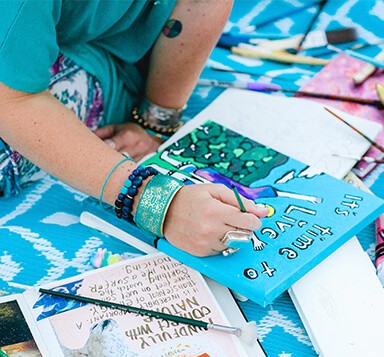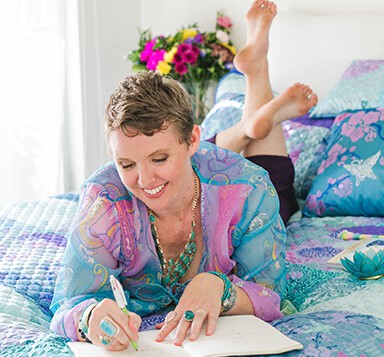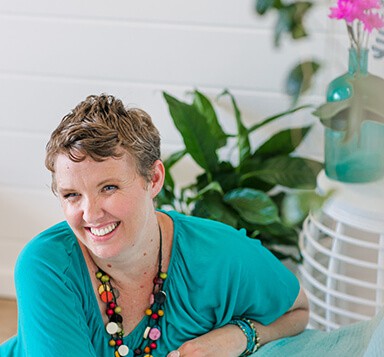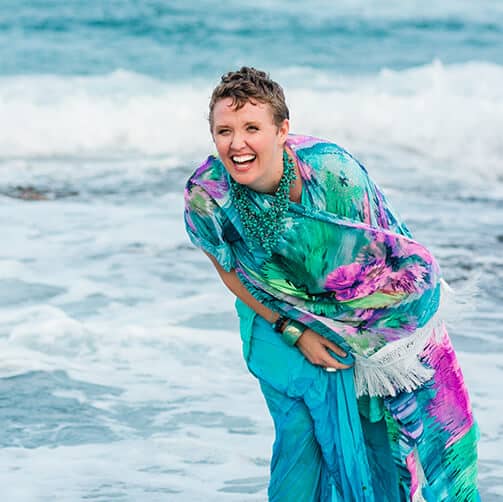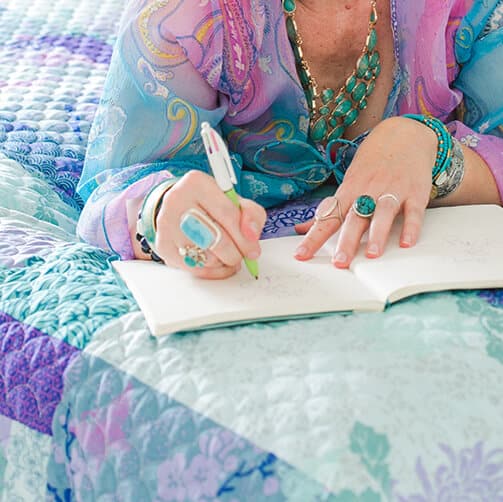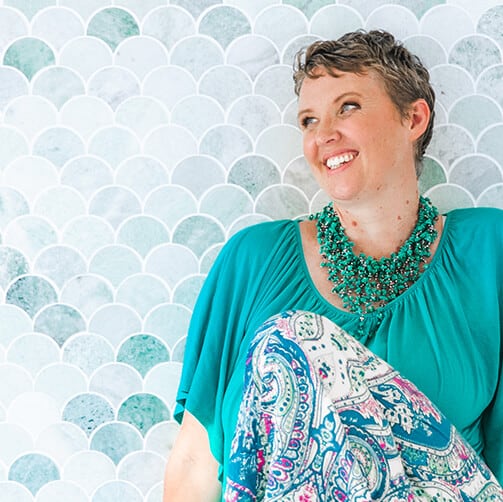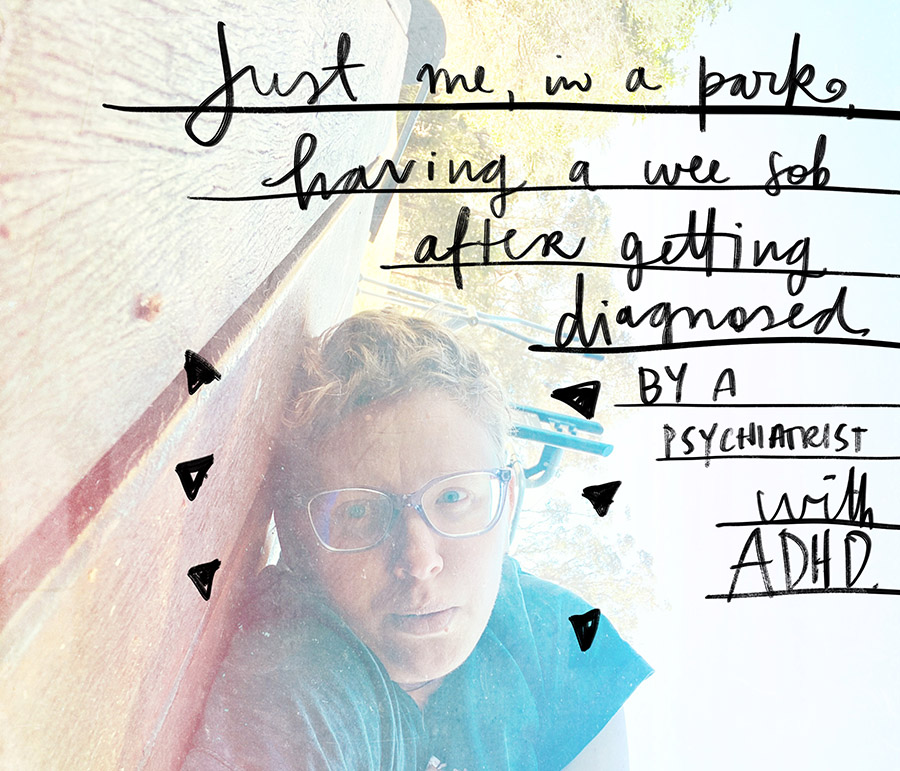
Dearests,
Nearly a decade ago, I realised I was Autistic. It was life-changing for me to discover in my early 30s that so much of what I had struggled with in my life wasn’t actually my fault – it was how my brain was built. I was officially diagnosed by a psychologist two years ago. It wasn’t surprising to get the official ASD diagnosis, I already knew deep in my cells that’s what the answer was. What surprised me was my diagnosing psychologist said I may also have ADHD as my working memory was low.
At the time, I didn’t understand or identify with having ADHD.
In my mind, I didn’t look like the stereotypical image of ADHD: a young boy who can’t concentrate or sit still, and usually did poorly academically. It was the same with ASD of course – I didn’t recognise myself as ASD because our cultural understanding of it is male Sheldon-like characters. It’s only once I started looking at the non-male stereotypes did I find myself represented.
Here’s what helped me recognise my ADHD-ness:
- Reading articles about women-centric ADHD (here’s a recent one).
- Discovering that a significant portion of people with ASD also have ADHD (up to 78%).
- Finding out that ADHD is common for entrepreneurs.
- I don’t use social media except for occasional video watching on Youtube & TikTok. TikTok has some excellent ADHD educational videos.
- Talking to my women friends with ADHD.
- Learning about the 7 types of ADHD (I am inattentive).
Eventually I decided I’d like to try medication for ADHD and see if it made a positive difference.
The process of getting formally diagnosed
Here in Australia, my psychological assessment wasn’t enough to be prescribed ADHD medication. I had to instead have an assessment by a psychiatrist. Here’s some details for those who are interested in the process.
- I went to my usual GP, and he referred me to a telehealth psychiatrist (Dr Tanase) who had diagnosed a few of his other patients.
- I was able to book online.
- I had to book four months ahead for a diagnosis.
- It cost $600. I get approx $230 back on Medicare. I acknowledge the enormous privilege of me being able to access and afford formal diagnosis.
- Because Dr Tanase is in NSW and I’m in QLD, he’s not able to prescribe me directly. Instead, he has to send a letter of recommendation authorising my GP to prescribe the medication to me.
Here’s how the process went:
- It lasted over 30 minutes. It probably could have gone for longer but I didn’t have any further questions, and my case was fairly cut and dry.
- The psychiatrist asked me a lot of questions about my family history of mental health, trauma and abuse, what medications I currently use, what ADHD symptoms most affected me, if I’d had any drug or alcohol addictions. Some of the questions were confronting. Psychiatrists are clinical practitioners, and aren’t there to provide pastoral support like a psychologist.
- He also guided me through a test to determine how often I experienced ADHD symptoms. That one made me laugh a lot.
“Do you talk too much in social situations?” “HAHAHAHAHA OH GOD YES.”
“Do you find it difficult to remember appointments?” “OMG YES. I have SO MANY TIMERS set.”
“Are you impulsive or distracted?” “Let me answer that by saying: it takes me 4x as long to go anywhere than it takes my husband. I get completely distracted by everything and have many fine adventures doing exactly what I didn’t intend to do! And then I arrive home three hours later and haven’t remembered anything I was supposed to.”
The diagnosis:
In the space of twenty minutes, the psychiatrist said:
“Yes, it’s very clear you have ADHD. It’s not been picked up at this point because you are both highly intelligent and extremely ambitious, so you’ve been able to achieve a level of success. You’ve also constructed an intense level of systems to help you. However, it comes at a cost that is higher than for others.
You’ve been able to mask your ADHD until you had children when the mental load wiped out your executive functioning. This has affected your confidence as a mother.
Since then, you’ve experienced ongoing anxiety and bouts of depression. The anxiety and depression may actually be a symptom of ADHD, and could possibly leave completely if you are medicated for ADHD. It may not, given your strong family history of mental health disorders. However this medication could be life-changing for you.”
I cried at this point.
As he finished up, he asked:
“Do you have any questions for me?”
“Yes. Is it safe for me to drive with this medication.”
“It’s not just safer, it’s highly recommended you do use this medication to drive. A disproportionately large number of car accidents are caused by people with ADHD who are unmedicated.”
This both made me cackle and terrified me.
He also recommended that I try out ADHD coaching. He recommended The Divergent Edge. I’ll have a looksee at them and other ADHD coaches to see what would be the best personality fit for me.
We finished up.
Next steps in the process:
- I have to do blood tests and an ECG to confirm I am safe to use the medication (dexamphetamine). It’s usually not recommended for people with high blood pressure. I’m in luck – I’ve got low blood pressure.
- Afterwards, I’ll return to my GP to get prescribed.
- I’ll start with one tablet, and slowly increase as required. Up to 8 tablets a day if needed. Basically, we’ll be testing what gives the best effect for the least side effect.
- If the medication is not the right fit for me, I can go back to the psychiatrist to see if something else may work better.
- And of course, I’m totally open to the possibility that medication isn’t the right fit for me at all. But I do want to try it.
Once we hung up:
I went and talked to my husband about it. I could sense I had some feelings building up inside me, so I decided to go for a walk. I took my phone and voicemailed my best mate to talk out what had happened. At a certain point, I began sobbing.
I sobbed for so many reasons.
The euphoria. The euphoria of finally being known. Of having a name for this twisty, glorious, painful, ridiculous, hilarious thing inside me.
The vulnerability of being so seen. How is it possible that in less than an hour, I could be noticed when I haven’t been noticed like this in almost 40 years? I felt sliced right through.
It also made me dare to hope that things might become easier for me. That life may not require the level of jury-rigged systems I have in place to not forget shit. That life doesn’t come at the enormous cost of exhaustion and sensory overwhelm that it currently does.
And lastly, the pain. The pain of how taxing parenting has been for me. How little confidence I’ve had in my parenting skills because constant consistency is my kryptonite. The constant shame of how little things like housework has always somehow felt beyond me. The pain of pushing so hard in every area of my life to somehow be competent. The exhaustion of how all of this is so.much.work.
I sobbed for kilometres until I found a park to lay down in and watch the sky. I wiped my snotty face all over my tshirt. Watched the gums dance in the wind. And then when it was enough, I wound my way back through a boardwalk in the rainforest. Watched the scrub turkey build his nest. Walked back out into the light, and found my way home.
If you asked me if I had a choice between being neurodivergent or not, I would choose neurodivergent. Over and over again. Despite the pain, the frustration, the difficulty. I’d choose it again, just as I’d choose me again.
The best parts of me are tangled up in this. My creativity, my genius, my insight, my hilariousness. I have the best fucking time with myself.
My brain works differently. It is not broken. It just needs different things to thrive. That may mean medication, it may not. But I am determined to give myself whatever I can to make life softer for me.
I’ll let you know what I discover as I go along.
Thank you, as always, for sharing this beautiful, winding path with me.
I love you,
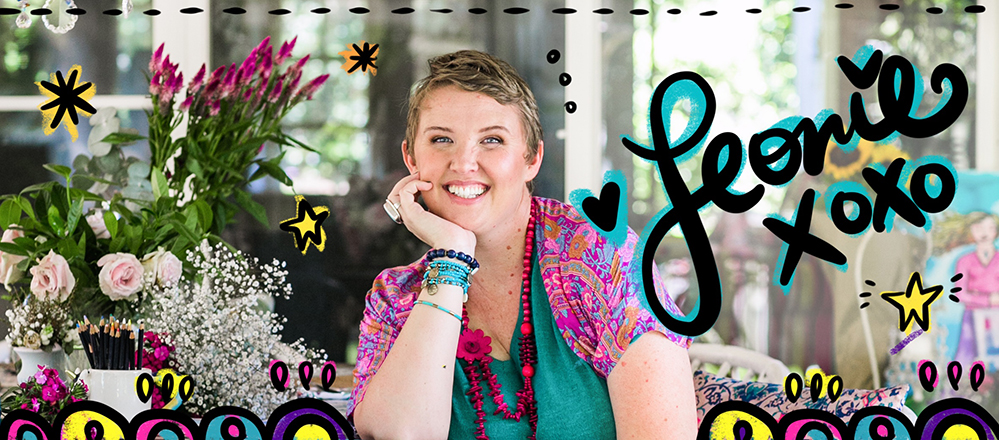
Important Boundaries:
I’m not open to hearing about why you think medication is bad. I wish to try for myself and see if the benefits outweigh any potential negative.
I don’t need to hear how a supplement/essential oil/vitamin/energy healing/special hippy jewellery/himalayan salt prayed over by virgin monks will fix me. I love, appreciate and use complementary medicine. And I’m also very open to using allopathic medicine as well. All are tools in the healing tool belt.
I’m not open to hearing how “everyone is on the spectrum.” Saying that takes away the pain and particular struggle of neurodiverse people. (Also, I reckon that people who say it are usually undiagnosed neurodivergents!)
I’m also not interested in hearing “I don’t understand why everyone wants to be diagnosed these days.” That’s a privileged and ableist perspective to take. We require diagnosis so we can understand our bodies and minds better, and give ourselves the support we require.
Thank you for your understanding and love as always!

FREE GOODIES:
BOOKS:
- Goal Getter workbooks for 2022 & beyond!
- Calm Christmas Planner
- Salt: a hottttt romance novella (published under my pen name Lola Leigh)
COURSES:


